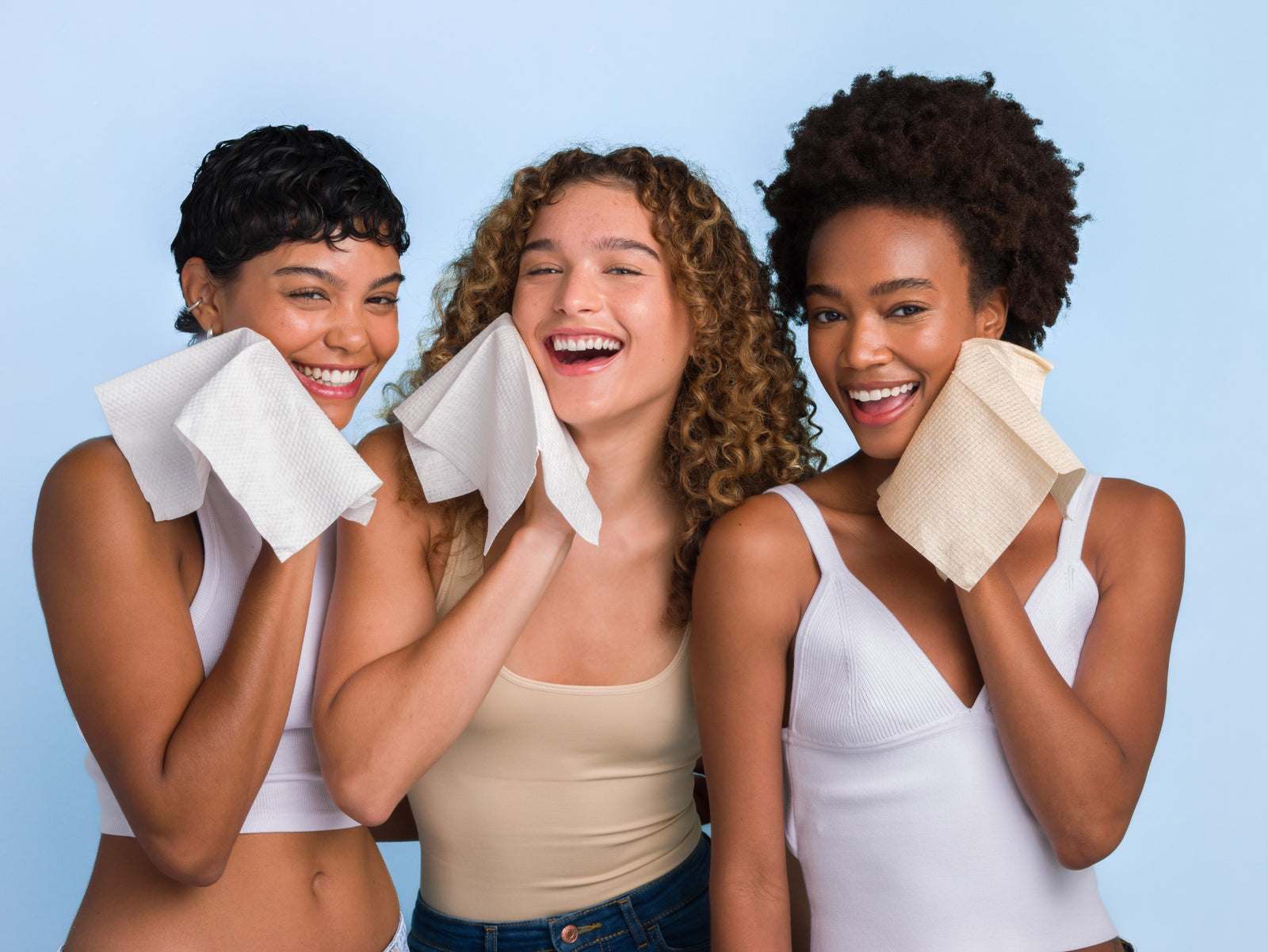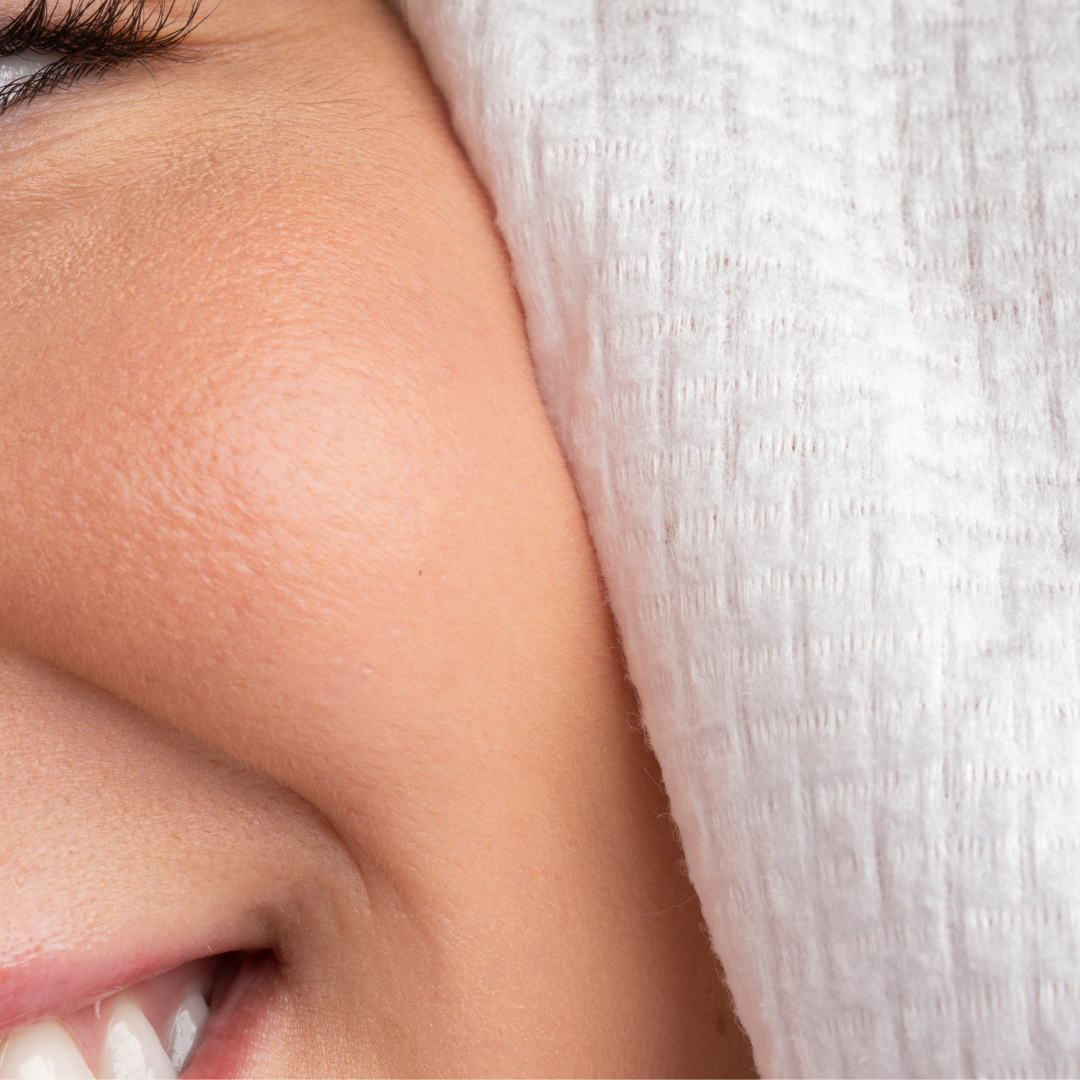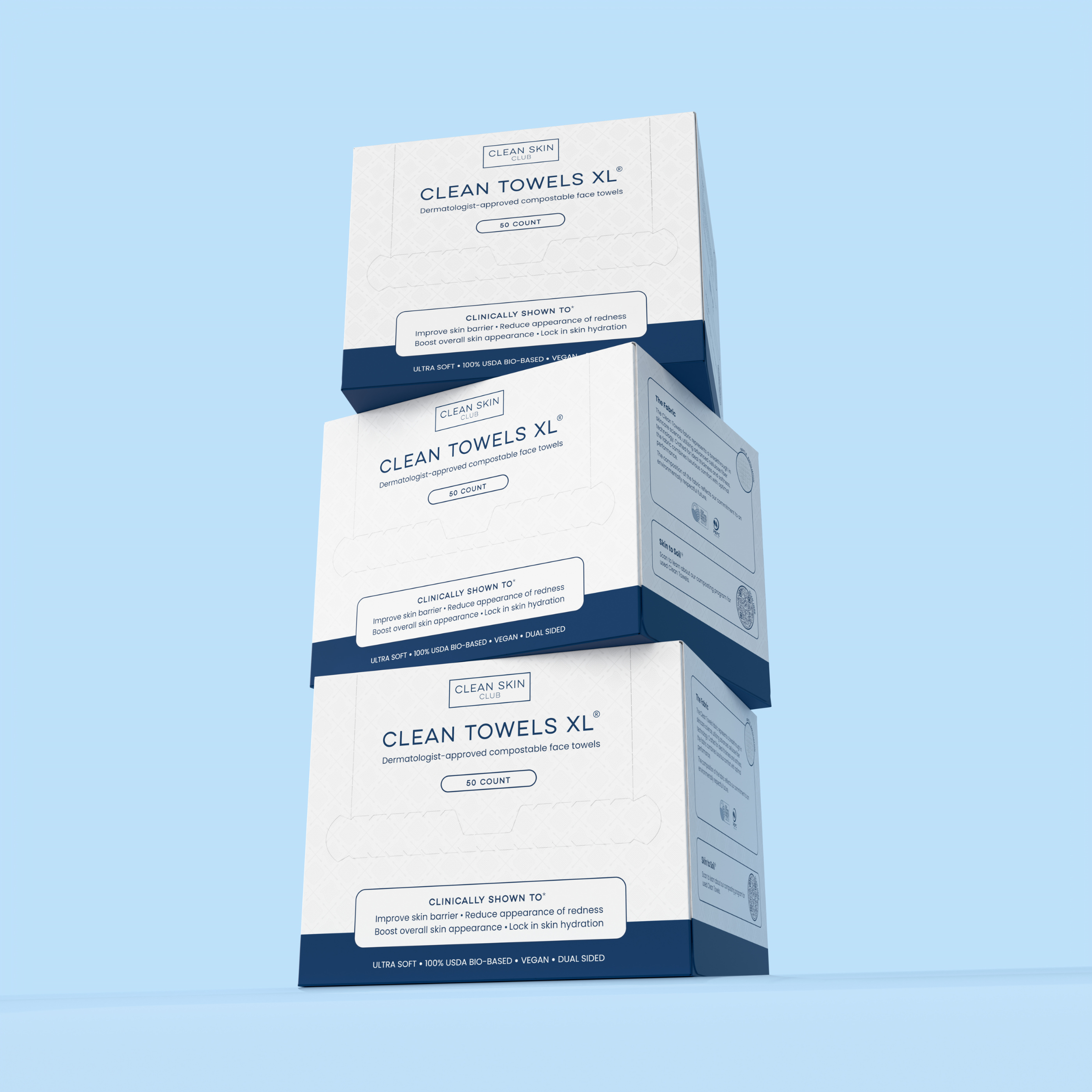
What are Clean Towels?
The Clean Towels are our original creation. They are the world's first single-use, USDA bio-based, and ultra-soft facial towel. This dry towel is made of premium viscose sourced from sustainable eucalyptus plantations. A revolution in skincare and hygiene, the Clean Towels ensure your face is spared from bacteria commonly found on normal towels.
Why Clean Towels?
We created Clean Towels to optimize your skincare routine and ensure your skin stays as clean as possible after you do the hard work of washing it. Traditional towels can accumulate bacteria over time, but Clean Towels eliminate this worry by offering a fresh, bacteria-free option with every use.
The Fabric
The fabric of Clean Towels represents a breakthrough in skincare, utilizing advanced cellulose fiber technology. Each element, from thickness to softness, has been carefully tested to ensure the fabric not only supports skin health but enhances the overall skincare experience. The result is a perfect balance between luxurious comfort and optimal performance. The composition of the fabric aligns with our vision for an environmentally respectful future, offering you peace of mind while you care for your skin.



